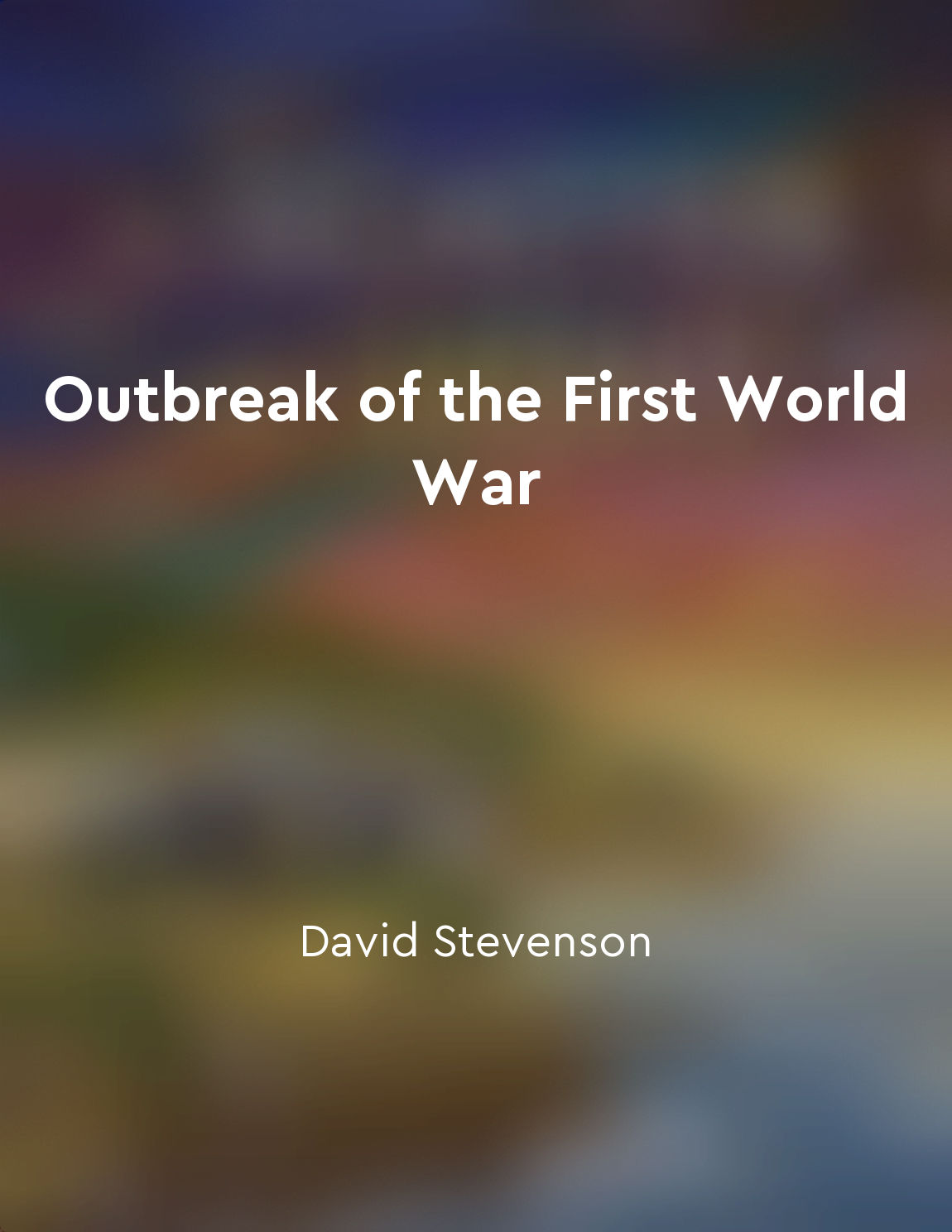Nationalism fuels public support for war from "summary" of The Origins of the First World War by Annika Mombauer
The idea that nationalism can contribute to a society's readiness to go to war is a central theme in understanding the origins of conflicts such as the First World War. Nationalism is a powerful force that can rally people around a common identity and cause, leading to a sense of unity and purpose. When a nation's leaders appeal to nationalist sentiments, they can tap into a deep reservoir of emotions and beliefs that can be harnessed to mobilize support for military action. In the context of the First World War, nationalism played a significant role in shaping public opinion and galvanizing support for the conflict. In the years leading up to the war, nationalist movements were on the rise in many European countries, fueled by a desire for self-determination and independence. These movements fostered a sense of national pride and patriotism that made people more willing to defend their country's interests through military means. Nationalism can also create a sense of "us versus them" mentality, where people see their nation as inherently superior to others and view outsiders as a threat. This can lead to a heightened sense of insecurity and a willingness to resort to military force to protect one's nation from perceived dangers. In the case of the First World War, nationalist rhetoric stoked fears of foreign aggression and fueled a desire to prove one's nation's strength and superiority on the battlefield. Furthermore, nationalism can blur the lines between rationality and emotion, making it easier for leaders to manipulate public opinion and justify aggressive actions. By appealing to people's sense of national identity and pride, leaders can garner support for war even when the reasons for conflict may be murky or questionable. This emotional appeal of nationalism can override logical reasoning and critical thinking, leading people to support military actions that they might otherwise oppose.- The concept that nationalism fuels public support for war highlights the complex interplay between identity, ideology, and conflict. By understanding how nationalist sentiments can shape public attitudes towards war, we can gain insight into the motivations and dynamics that drive nations towards armed conflict.
Similar Posts
Iran coup leads to longterm consequences
In 1953, the United States orchestrated a coup in Iran that ousted the democratically elected Prime Minister, Mohammad Mossadeg...
Poona Pact
The Poona Pact was an agreement reached between Dr. B.
R. Ambedkar, representing the depressed classes, and Mahatma Gandhi, re...
Nationalism and the concept of the 'homeland'
The idea of nationalism is intimately connected with the concept of the 'homeland.' Nationalism, as a political ideology, relie...
The war exposed the realities of modern warfare
The Great War was supposed to be a brief and glorious conflict, a demonstration of national power and military might. However, ...

Shift in public opinion towards war
David Stevenson vividly portrays the dramatic transformation in public sentiment leading up to the outbreak of the First World ...

Europe in early 20th century
In the early 20th century, Europe was facing a complex web of political, social, and economic challenges that would ultimately ...

